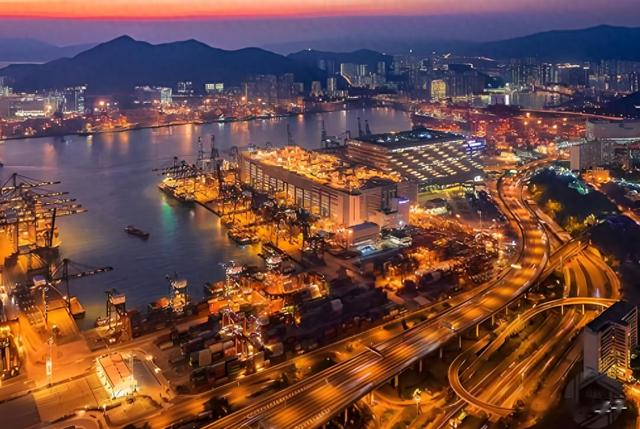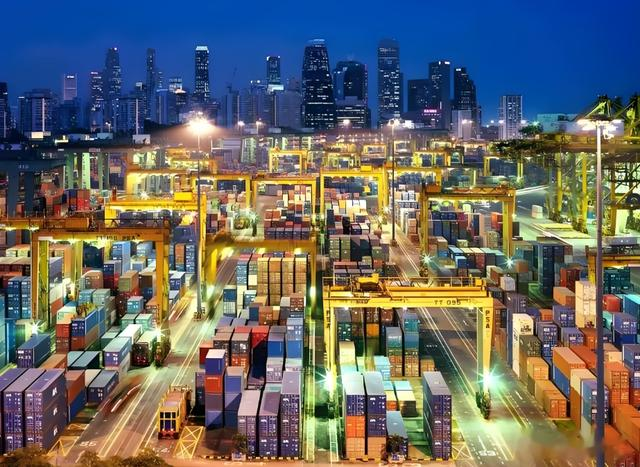 二、制造业初期发展:在20世纪中叶,香港制造业开始兴起,初期主要是纺织、制衣、鞋类、金属制品等传统工业。这些制造业的发展为香港经济注入了新的活力。转型升级:随着全球产业结构的调整和市场竞争的加剧,香港制造业逐渐从劳动密集型向技术与资本密集型转变,如电子、钟表、化工、仪器等行业逐渐崭露头角。
二、制造业初期发展:在20世纪中叶,香港制造业开始兴起,初期主要是纺织、制衣、鞋类、金属制品等传统工业。这些制造业的发展为香港经济注入了新的活力。转型升级:随着全球产业结构的调整和市场竞争的加剧,香港制造业逐渐从劳动密集型向技术与资本密集型转变,如电子、钟表、化工、仪器等行业逐渐崭露头角。 三、服务业的全面发展金融服务业:随着香港经济结构的多元化发展,金融服务业逐渐成为其支柱产业之一。香港金融市场高度发达,股票市场、债券市场等交易活跃,吸引了全球的金融机构和资金汇聚。此外,香港还拥有完善的金融监管体系和法律制度,为投资者提供了稳定、透明和可预测的投资环境。物流服务业:作为自由贸易港,香港的物流服务业也得到了极大的发展。其高效的物流系统和先进的港口设施为货物的快速流通提供了有力保障。专业服务业:随着香港经济的持续发展,法律、会计、咨询等专业服务业也逐渐兴起。这些专业服务业为香港经济的发展提供了重要的智力支持和人才保障。旅游业:香港作为国际大都市,拥有丰富的旅游资源和独特的文化氛围,吸引了大量的国内外游客前来观光旅游。旅游业的发展为香港经济带来了可观的收益。文化创意产业:近年来,香港的文化创意产业也逐渐崭露头角,包括电影、音乐、设计等领域。这些产业的发展不仅丰富了香港的文化内涵,也为香港经济注入了新的活力。
三、服务业的全面发展金融服务业:随着香港经济结构的多元化发展,金融服务业逐渐成为其支柱产业之一。香港金融市场高度发达,股票市场、债券市场等交易活跃,吸引了全球的金融机构和资金汇聚。此外,香港还拥有完善的金融监管体系和法律制度,为投资者提供了稳定、透明和可预测的投资环境。物流服务业:作为自由贸易港,香港的物流服务业也得到了极大的发展。其高效的物流系统和先进的港口设施为货物的快速流通提供了有力保障。专业服务业:随着香港经济的持续发展,法律、会计、咨询等专业服务业也逐渐兴起。这些专业服务业为香港经济的发展提供了重要的智力支持和人才保障。旅游业:香港作为国际大都市,拥有丰富的旅游资源和独特的文化氛围,吸引了大量的国内外游客前来观光旅游。旅游业的发展为香港经济带来了可观的收益。文化创意产业:近年来,香港的文化创意产业也逐渐崭露头角,包括电影、音乐、设计等领域。这些产业的发展不仅丰富了香港的文化内涵,也为香港经济注入了新的活力。围绕转口贸易的其他部门,航远,船务、港口、码头、货仓、码头、保险、银行、邮电通讯的等行业应运而生,如今海南即将封关,这些行业将有可能是海南未来发展的重中之重。

Section One: Entrepot Trade and Shipping Industry
Entrepot Trade: Hong Kong, initially as a free trade port, primarily relied on its superior geographical location and port conditions to develop entrepot trade. Goods, capital, technology, and talent from around the world began to converge in Hong Kong, driving the rapid development of entrepot trade.
Shipping Industry: With the prosperity of entrepot trade, Hong Kong's shipping industry also experienced significant growth. Hong Kong boasts advanced port facilities and efficient logistics operations, capable of handling large volumes of cargo transportation swiftly, reducing trade costs, and further consolidating its position as a leading trade port.
Section Two: Manufacturing Industry
Initial Development: In the mid-20th century, Hong Kong's manufacturing industry began to emerge, initially focusing on traditional industries such as textiles, garment manufacturing, footwear, and metal products. The development of these manufacturing sectors injected new vitality into Hong Kong's economy.
Transformation and Upgrading: As global industrial structures adjusted and market competition intensified, Hong Kong's manufacturing industry gradually transitioned from labor-intensive to technology- and capital-intensive, with industries such as electronics, watches, chemicals, and instruments gradually emerging.
Section Three: Comprehensive Development of Service Industries
Financial Services Industry: With the diversified development of Hong Kong's economic structure, the financial services industry has gradually become one of its pillar industries. Hong Kong's financial market is highly developed, with active trading in stock and bond markets, attracting global financial institutions and capital. Furthermore, Hong Kong has a well-established financial regulatory system and legal framework, providing investors with a stable, transparent, and predictable investment environment.
Logistics Services Industry: As a free trade port, Hong Kong's logistics services industry has also experienced significant growth. Its efficient logistics system and advanced port facilities provide strong support for the rapid circulation of goods.
Professional Services Industry: With the sustained development of Hong Kong's economy, professional services industries such as law, accounting, and consulting have gradually emerged. These professional services industries provide important intellectual support and talent guarantee for the development of Hong Kong's economy.
Tourism Industry: As an international metropolis, Hong Kong boasts rich tourism resources and a unique cultural atmosphere, attracting a large number of domestic and international tourists to visit. The development of the tourism industry has brought considerable revenue to Hong Kong's economy.
Cultural and Creative Industries: In recent years, Hong Kong's cultural and creative industries have gradually emerged, including fields such as film, music, and design. The development of these industries not only enriches Hong Kong's cultural connotation but also injects new vitality into its economy.
Around the entrepot trade, industries such as shipping, shipping services, ports, wharves, warehouses, insurance, banking, and postal and telecommunications have emerged. Now, as Hainan is about to implement its closed-off management policy, these industries are likely to become the top priorities for Hainan's future development.
